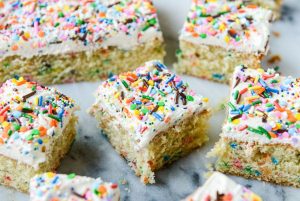
Delta-8-THC (Delta-8-tetrahydrocannabinol) and high-CBD strains are two distinct compounds derived from the cannabis plant, each with its own unique properties and effects. Here’s a comparison of Delta-8 and high-CBD strains to help you understand their differences:
- Chemical Composition:
Delta-8-THC: Delta-8-THC is a minor cannabinoid found in the cannabis plant. It is a psychoactive compound, although its psychoactive effects are generally milder compared to Delta-9-THC, the primary psychoactive compound in cannabis. Click here theislandnow.com.
High-CBD Strains: High-CBD strains are cannabis plants bred to have a high concentration of cannabidiol (CBD), a non-psychoactive cannabinoid. These strains typically have very low levels of Delta-9-THC, often below the legal limit (0.3% in the United States).
- Psychoactive Effects:
Delta-8-THC: Delta-8-THC is psychoactive but tends to produce milder and more clear-headed effects compared to Delta-9-THC. Users often describe it as producing relaxation, mild euphoria, and improved focus.
High-CBD Strains: High-CBD strains are non-psychoactive or have very low psychoactivity due to their minimal Delta-9-THC content. They do not produce the characteristic “high” associated with THC-rich strains.
- Potential Medical Benefits:
Delta-8-THC: Delta-8-THC is being investigated for its potential medical benefits, which may include pain relief, nausea reduction, and anxiety management. However, research is still in its early stages.
High-CBD Strains: High-CBD strains are primarily sought after for their potential therapeutic benefits. CBD has been studied for its potential to reduce pain, inflammation, anxiety, seizures, and nausea. It is also used in medical treatments for conditions like epilepsy and certain forms of pediatric epilepsy.
- Legality:
Delta-8-THC: The legal status of Delta-8-THC varies by location. In some regions, it is considered a legal alternative to Delta-9-THC, while in others, it may be regulated similarly to Delta-9-THC. Always check local laws and regulations.
High-CBD Strains: High-CBD strains, with Delta-9-THC levels below the legal limit, are often more widely accepted in terms of legality, especially for medical purposes. However, the legal status of CBD products can vary, so it’s essential to stay informed about local laws.
- Potential Side Effects:
Delta-8-THC: Like Delta-9-THC, Delta-8-THC can have side effects, including dry mouth, increased heart rate, anxiety, and impaired coordination. However, these effects are generally reported as less intense.
High-CBD Strains: High-CBD strains are associated with fewer side effects, mainly due to their low or non-existent Delta-9-THC content. Users typically report milder or no psychoactive effects.
- Availability:
Delta-8-THC: Delta-8-THC products, such as Delta-8-infused gummies and vape cartridges, have become more widely available in some regions, both in cannabis dispensaries and online.
High-CBD Strains: High-CBD strains and CBD products are also widely available in regions where cannabis is legal for medical or recreational use. They can be found in various forms, including flower, tinctures, capsules, and edibles.
Conclusion
In summary, Delta-8-THC and high-CBD strains offer different effects and potential benefits. Delta-8 is psychoactive but generally produces milder effects compared to Delta-9-THC, while high-CBD strains are non-psychoactive and sought after for their potential therapeutic properties. The choice between them depends on your desired effects, legal considerations, and individual preferences. Always consult local laws and regulations before using any cannabis-derived products. Find more here theislandnow.com.






